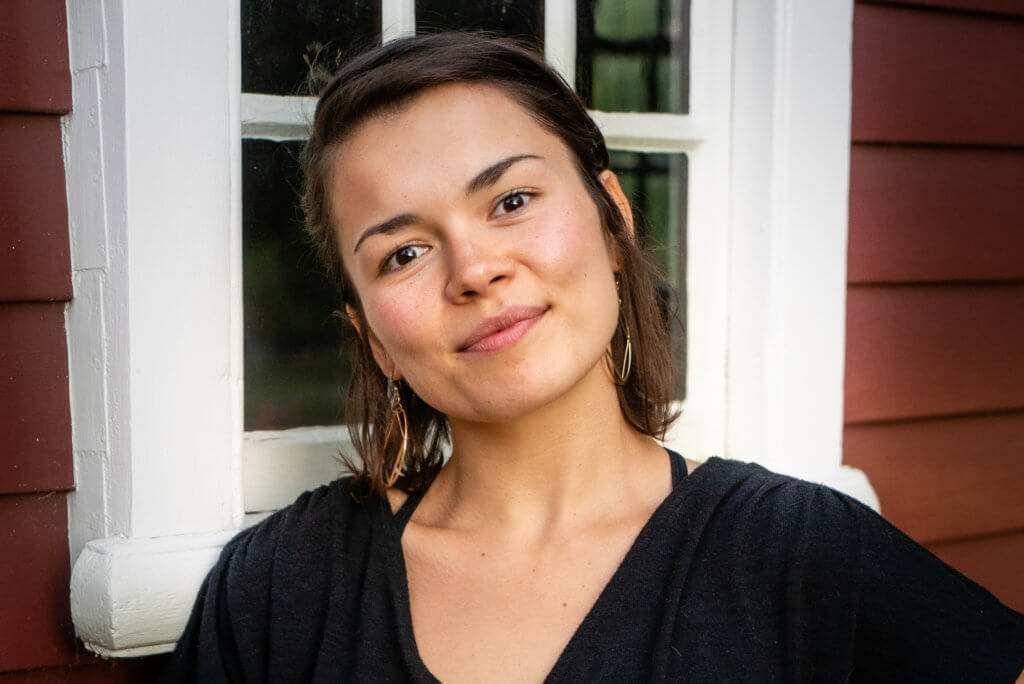Episode
Highlights
HARD TO FIND A THERAPIST
“There’s not one solid system right now that someone can point at and say, ‘I need this kind of a therapist, and this is where I’m gonna find it in our state.'”
—SANDRA VICTORINO
FAMILY TAKING CARE OF FAMILY
“In the countries of origin that are latino, you had to be extremely privileged to be able to have mental health therapy. Other than that, it was family taking care of family.”
—SANDRA VICTORINO
REZAR
“My mom used to tell me to rezar and pray and, and things would get better. And, yeah, that was good, because it was a practice of meditation. But it didn’t solve the complexity of being a kid that was in two worlds all the time.”
—SANDRA VICTORINO
BRACERO PROGRAM
“But he had me write down this story, and I just loved the fact that someone wanted to hear it. So, I handed it in, and he looked at me, and he’s like, ‘Your parents were the lettuce pickers.’ And I’m like, ‘What do you mean, ‘lettuce pickers?” He’s like, ‘I studied in California, when I was younger, and there was a ton of, like, lettuce pickers.’ And, and it was so funny that that’s how he connected us. He’s like, ‘You’re part of the bracero program.'”
—SANDRA VICTORINO
“When [my mom] immigrated, she stopped going to school when she was around third grade, because it was really difficult for her to learn English. And at that time in the United States, you were not allowed to speak Spanish in school.”
—SANDRA VICTORINO
EVERYBODY'S TRAUMAS ARE DIFFERENT
“I fell in love with the fact that everybody has a story. And everybody’s traumas are different. And I was like, if only this information was passed to my family, things might have been different and or easier.”
—SANDRA VICTORINO
A THERAPIST IN RHODE ISLAND
“One of the things that I really appreciate about Rhode Island is that in Rhode Island, because it is so small, you can see the good and you can see the dysfunction. So as therapists, when we have families that come into therapy, and we can see the dysfunction, that family is 10 times easier to work with.”
—SANDRA VICTORINO
“The journey of therapy is a beautiful one. I get to be someone’s co-pilot in their journey, and they get to be the pilot. And then when I get to see them take off on their own. And I’m just, I’m standing there, and I see them take off. I’m like, ‘Yes!'”
—SANDRA VICTORINO
“And so, the Latino community has taught me so much about their different cultures, their different ways of understanding. And, you know, I most for most of my life, I was just raised around Mexican communities,… I’ve learned so much in Rhode Island, and I just want to be able to give that back.”
—SANDRA VICTORINO
LATINO PROVIDERS
“If I can see that provider and they’re Latino, it makes it 10 times easier, because they understand some of the baggage that I may not be able to speak of.”
—SANDRA VICTORINO
“Each country that you immigrate from has a different story of, you know, trauma that comes from that country. So if a provider can’t think about those things for me at times, then they can’t ask me the questions.”
—SANDRA VICTORINO
“If you don’t know the community you’re working with, you don’t know where to send people.”
—SANDRA VICTORINO
SEAT AT THE TABLE
“Because that’s how people learn, too, is by being at the table. It’s creating those pathways. And that’s my job is to make sure that it’s easier for the next generation. And that’s the way I see it.”
—SANDRA VICTORINO
Episode
Notes
The Providence Center Emergency Line: 401-274-7111
(this is for all ages in need of emergent treatment, a clinician answers 24 hours 7 days a week)
Butler Hospital Behavioral Health Call Center: 844-401-0111
RI Behavioral Health Hotline: 401-414-LINK
Parent Support Network of Rhode Island: 401-467-6855
Mental Health Advocacy, Education & Policy:
Mental Health Association: 401-726-2285
National Alliance on Mental Health: 401-331-3060
Latino Mental Health Network RI: latinomentalhealthri@gmail.com

